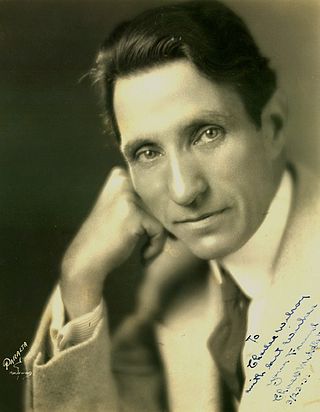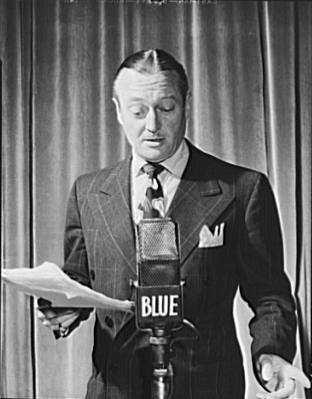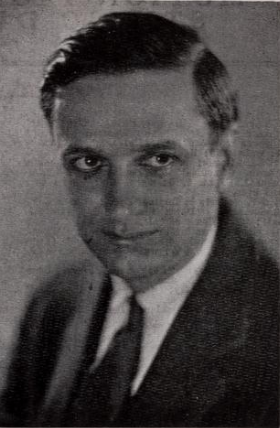Related Research Articles

Kenneth Olin Maynard was an American actor and producer. He was mostly active from the 1920s to the 1940s and considered one of the biggest Western stars in Hollywood.

Sam Katzman was an American film producer and director. Katzman's specialty was producing low-budget genre films, including serials, which had disproportionately high returns for the studios and his financial backers.

Frankie Darro was an American actor and later in his career a stuntman. He began his career as a child actor in silent films, progressed to lead roles and co-starring roles in adventure, western, dramatic, and comedy films, and later became a character actor and voice-over artist. He is perhaps best known for his role as Lampwick, the unlucky boy who turns into a donkey in Walt Disney's second animated feature, Pinocchio (1940). In early credits, his last name was spelled Darrow.
Heinz Roemheld was an American composer.

Charles Brown Middleton was an American stage and film actor. During a film career that began at age 46 and lasted almost 30 years, he appeared in nearly 200 films as well as numerous plays. Sometimes credited as Charles B. Middleton, he is perhaps best remembered for his role as the villainous emperor Ming the Merciless in the three Flash Gordon serials made between 1936 and 1940.
Poverty Row is a slang term used to refer to Hollywood films produced from the 1920s to the 1950s by small B movie studios. Although many of them were based on today's Gower Street in Hollywood, the term did not necessarily refer to any specific physical location, but was rather a figurative catch-all for low-budget films produced by these lower-tier studios.

Edmund Sherbourne Lowe was an American actor. His formative experience began in vaudeville and silent film.
Mascot Pictures Corporation was an American film company of the 1920s and 1930s, best known for producing and distributing film serials and B-westerns. Mascot was formed in 1927 by film producer Nat Levine. In 1935, it merged with several other companies to form Republic Pictures.

Wheeler Oakman was an American film actor.

Edgar Warren Hymer was an American theatre and film actor.
Raymond Edgar Taylor was an American film director. He directed 159 films between 1926 and 1949. His debut was the 1926 film serial Fighting with Buffalo Bill.
Nat Levine, was an American film producer. He produced 105 films between 1921 and 1946. Born in New York City, he entered the film industry as an accountant for Metro Pictures and became personal secretary to Metro head Marcus Loew.
Harry S. Webb was an American film producer, director and screenwriter. He produced 100 films between 1924 and 1940. He also directed 55 films between 1924 and 1940. He was the brother of "B"-film producer and director Ira S. Webb and the husband of screenwriter Rose Gordon, who wrote many of his films.

Craig Reynolds was an American film actor of the 1930s and 1940s.
Majestic Pictures was an American film production and distribution company active during the 1930s. Under the control of Larry Darmour, the company specialized in low-budget productions and was one of the more stable Poverty Row outfits during the period. It also gained a reputation for producing higher quality films than was common amongst similar studios, possibly due to a business arrangement the company had with the major studio MGM.
Lawrence J. Darmour (1895–1942) was an American film producer, operator of Larry Darmour Productions from 1927, and a significant figure in Hollywood's low-budget production community.
Tremlet C. Carr was an American film producer, closely associated with the low-budget filmmaking of Poverty Row. In 1931 he co-founded Monogram Pictures, which developed into one of the leading specialist producers of B pictures in Hollywood.

Howard J. Green was an American screenwriter who worked in film and television. He was the first president of the Screen Writers Guild and a founder of the subsequent Writers Guild of America, West.
James S. Brown Jr. was an American cinematographer. He was a prolific worker with around 150 credits during his career spent generally with lower-budget outfits such as Columbia Pictures, Mayfair Pictures and Monogram Pictures.